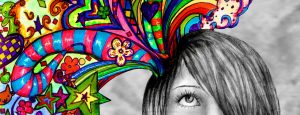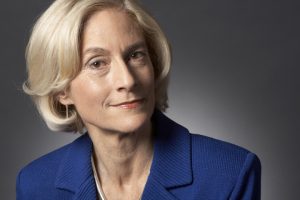Looking backwards and wondering ‘what if’ is an exercise that requires care and some measure of wisdom. However, we need to engage in the ‘what if’ questions to nurture reflexivity and so challenge ourselves to be energised by the possibilities of change.
So here is a question – if you could turn the clock back what would you change about the way you were educated? What have the processes of formal or informal learning given you for life? Where are the gaps in our understanding? What perplexes us still? What might you need to equip yourself for this present stage of your living and loving?
In my northern grammar school the regimented and often over-controlled systems and processes of teaching were focused on output, exams and success. The teaching was variable and I now lament the sheer lack of space between lessons, between days and between subjects. At one level, my secondary school education served me well in giving me an appetite for hard work, a capacity for good organisation and an ability to absorb information quickly. It opened the door to university and I have since then more or less been engaged in further education, research and writing. In addition, of course, I belong to a generation that has never paid a penny for their higher education and I doubt I would be writing this piece today had the current system been in place in 1979. However, I can see its limitations and feel its inadequacies in its formative influence over my attitude to work, productivity and aspirations.
These questions are the background to some of my thinking when I picked up this extraordinarily bold and adventurous question that Martha Nussbaum asks in her widely acclaimed book, Not for Profit: Why Democracy Needs the Humanities. (Princeton University Press 2010), ‘What kind of education might enable us to inhabit our complex and often fragmented democracy?’
The argument goes something like this. We are nurturing a generation of young people whose lives have been dominated by the idols of individualism, materialism and consumerism. This shaping of our values within a capitalist economy often controls our choice of subjects at school and university. Once upon a time we wanted to be educated – we now want to be, Nussbaum argues, schooled for financial success. This has so dominated our curriculum that we are producing a generation incapable of living with paradox, contradiction and anxiety.
Drawing down upon Western and non-Western philosophy and educational theory the reader is asked how we might embrace a more imaginative capacity that can nurture perception, human growth, a wider horizon of what it might mean for us to flourish as human beings in community. We need to be skilled in these arts. We neglect the imagination and the cultivation of our inner eyes. This deficiency has extraordinary dangers for all parts of our life. We are alerted to a silent crisis in which nations either disregard or discard the skills that the arts and humanities give to society in favour of national profit. As the arts and humanities are diminished, we live with the consequences of an erosion of the very qualities that are essential to democracy.
The arguments and questions here are reflected in so many ways in our churches. If we are to embrace diversity and good disagreement principles, we need to teach one another how to nurture the critical thinking skills required for an independence of spirit and action. We all need to learn an intelligent resistance to the power of blind tradition and authority. The nurture of curiosity and imagination offers a more textured approach to growth and change. When we step outside of our own preoccupations and limitations learning to imagine the situations of others is a fundamental requirement for a successful democracy that is committed to everyone’s flourishing.
Our churches are no exception to the misuse of power and the exploitation of our human limitations. In some ways, we all need a lesson in how we can get along with others without maintaining total control. To do this we need to open ourselves up to the experience of vulnerability and surprise, to curiosity and wonder. This adventure in learning is made possible through music, poetry, art, theatre and storytelling. They can all help us live with the limitations present in all of life and powerful in the way that they face us with pernicious and dangerous dynamics of anxiety, disgust and shame. These powerful emotions are a universal response to our human helplessness.
Perhaps I am bound to say that theology and good spiritual formation can help us through the realities of that culture that both shapes and mis-shapes us? Churches are wise in their understanding of our mutual need and interdependency. We must learn to step out of our small worlds into a larger horizon of radical transformation that comes with identifying with common human predicaments. When we see the world through the lens of many types of vulnerability then imagination is released to do its work.
So we might ask ourselves: how do we come to see people as real and equal? How does our public theology help us to cultivate imagination so that we are able to be an equal amongst equals? The churches have a role and responsibility to enable our commitment to global citizenship for the good of all. Slowing up, taking a longer view, and asking what we can do to contribute to well-being through the relational, the pastoral and the releasing possibilities of empathy are concrete ways of putting our education into practice.
I am reminded of words I heard from Maya Angelou at an international conference in Washington DC some 10 years ago: ‘I have learned that people will soon forget what you said, they will eventually forget what you did but they will never forget how you made them feel.’
So – go on – think about a conversation or some practice that will nurture and imagination in your community. Consider the gaps and your power and ability to make a transformative difference within a larger horizon of love.
Professor James Woodward
Principal of Sarum College




